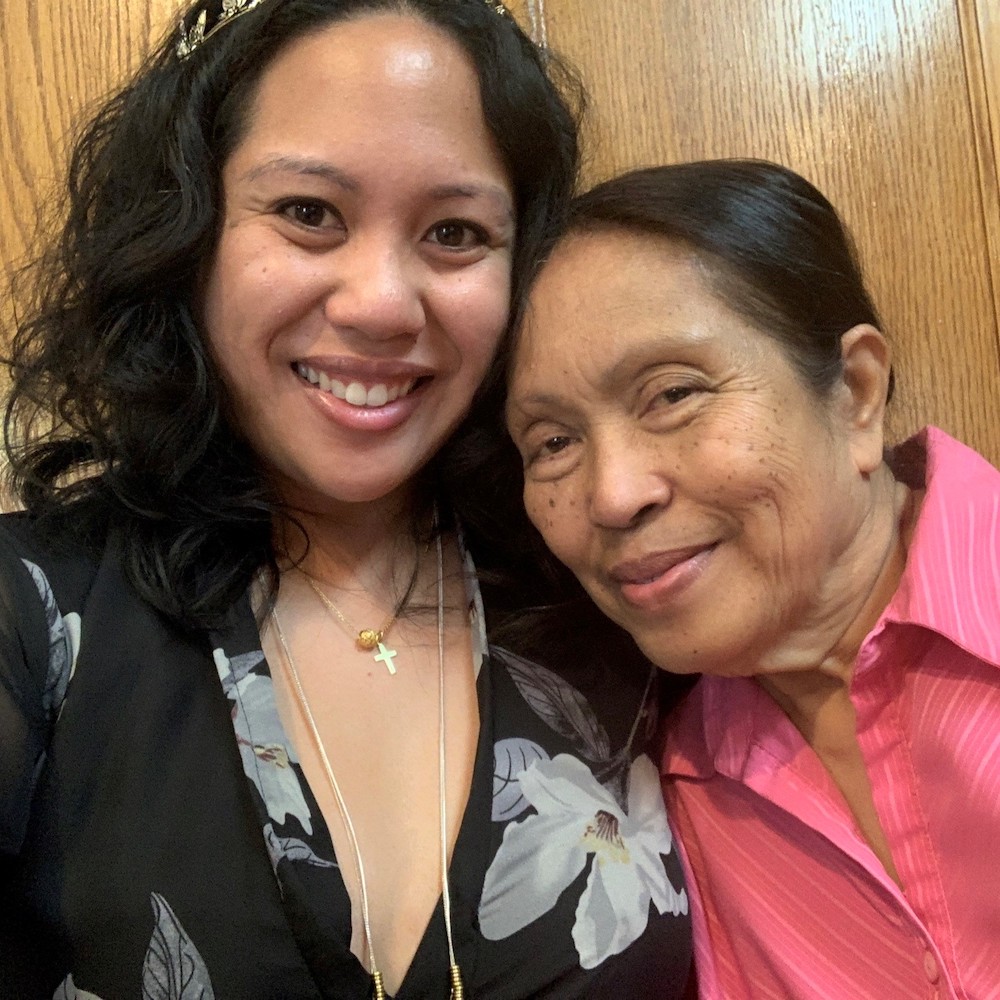October 6, 2021
Try as we may, it’s hard to see our stories unfolding as life happens. It’s often not until we look back that we see how the small chapters seem to align. I believe I am a part of First 5 LA’s journey today – to partner in building strong and healthy futures of L.A. County’s youngest children – because of the helping hands I oftentimes witnessed and other times questioned early in life. Each helping to build my own appreciation of the needs young children face, and the paths families follow for their future success.
As a first-generation American raised by a single Mom who accomplished her personal goal of emigrating from the Philippines – my experience is not the same as many Filipino American families. I recognize that I look Filipino, but as a child I was raised to identify as an American. Here is our story:
My Mom is the seventh of nine children raised in a hut in Batangas, Philippines. I recall the childhood story she shared with me of her parents and siblings sharing a single chicken wing for a meal. Passed along through each child from the eldest to youngest. By time it reached her and those younger the wing had no more to offer than bone and marrow. Even in my youth I knew this was a story about what it was like to not have enough.
Yet, I also see how this story filled her in other ways – caring as she traveled to America to support her nieces and nephew who were living through poverty as their Mom struggled with addiction. And carrying to our home in Echo Park, Los Angeles two parts of a mandatory curriculum in the Philippines. One – learn English, the country’s primary language. And two – in order to be successful, you had to travel out of the Philippines.
I was taught at an early age that I had to adapt to American culture to be successful. My skin was too dark, so my Mom bathed me with whitening soap. My hair was too curly and thick. One time, my aunt came from behind and without my consent used her eyebrows scissors to cut off all my hair. What I internalized as a child was that I would never be successful because I was not white enough.
I recall how “not enough” felt throughout my childhood. How walks to a money transferring agency always started with a long-distance call. I would watch as my Mom looked down, increasingly disappointed as she spoke with whoever was on the other end. Other times she would drag me out of bed and off we would go to transfer money. Many years later I now have the transactional relationship with our family abroad. Sacrificing to help as much as I can to keep my adult cousin and her children alive. Asking myself – is it enough?
Aside from regularly sending boxes of toiletries and packaged foods, a normal day for me is waking up to multiple text messages at 1:00 am. My cousin sharing her struggles of living in poverty during the COVID-19 pandemic. She will have already called my Mom multiple times trying to get a hold of me because I am the only one in my family willing to transfer money through my phone app.
I think of the connections, the transactions and even the consequences that come with having transactional relationships with our family abroad. My uncle who was one of my father figures emigrated to support his own family. He was a substitute teacher in the Los Angeles Unified School District for his entire career. When he returned to the Philippines to retire after working abroad for 30 years, he finally reunited with his three sons and wife. We talk to him now and he struggles as they do not have a good relationship with him, and they show resentment for him not being active in their lives.
My experience as a first-generation Filipino American has often centered on the question – what is the measure of enough? And the answer will always be… it is the least we can do – and more. To share that commitment through First 5 LA is to know that my family’s legacy of a helping hand lives redefined through me. Gathering new ways to lift children to be the best they can be – and starting countless new stories for our county’s Filipino American children.
This is not meant to be a sad story, but a resilient one. A family that showed grit to adapt to a new culture and to preserve the one we have back home. I don’t find this as a generational curse, but a generational blessing. Being Filipino American to me is never forgetting where my family comes from.









